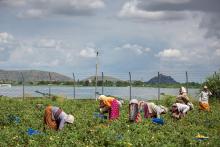Nov. 28, 2021
The World Health Organization is convening a special session of its governing body, the World Health Assembly, to start talks on a new global treaty covering pandemics. Representatives of WHO's 194 member states will meet virtually for three days starting on Monday to consider new international rules for handling future outbreaks.









